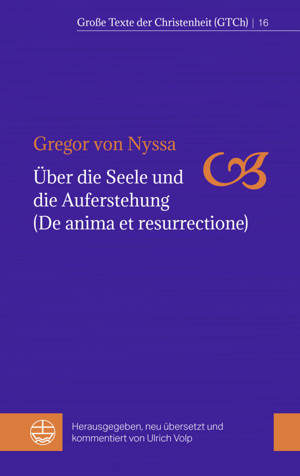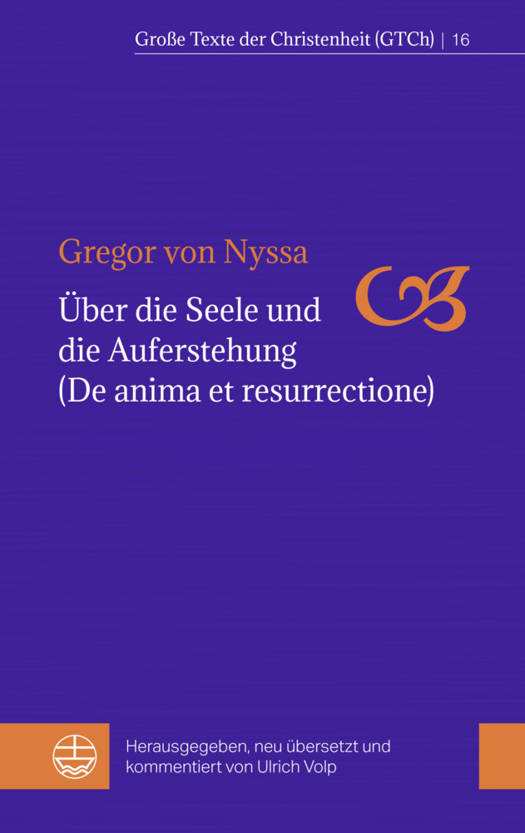
- Afhalen na 1 uur in een winkel met voorraad
- Gratis thuislevering in België vanaf € 30
- Ruim aanbod met 7 miljoen producten
- Afhalen na 1 uur in een winkel met voorraad
- Gratis thuislevering in België vanaf € 30
- Ruim aanbod met 7 miljoen producten
Zoeken
Über die Seele und die Auferstehung (De anima et resurrectione)
Hrsg., neu übersetzt und kommentiert von Ulrich Volp
Gregor von Nyssa
€ 23,95
+ 47 punten
Omschrijving
In dem berühmten Dialog, der auch als der »christliche Phaidon« bezeichnet wurde, diskutieren Makrina in der Rolle der christlich-philosophischen Lehrerin und ihr Bruder Gregor von Nyssa in der Schülerrolle über den Tod, die Seele, die Auferstehung und die Vernünftigkeit der christlichen Offenbarung. Anhand von Fragen der Anthropologie und der Naturwissenschaft, der Natur und des Zustands der Seele nach dem Tod, der Seelenwanderung und der Rolle des diesseitigen Lebenswandels für die zukünftige Existenz des Menschen erweist sich dabei die christliche Theologie im Gegensatz zu den verbreiteten antiken Lehren als die kohärentere Philosophie. Die große Popularität dieses Textes in früheren Jahrhunderten führte zu einer reichen Handschriftenüberlieferung, der hier erstmals in einer modernen Übersetzung umfassend Rechnung getragen wird.
[De anima et resurrectione]
In the famous dialogue, which has also been referred to as the »Christian Phaidon«, Macrina in the role of the Christian philosophical teacher and her brother Gregory of Nyssa in the role of the student discuss death, the soul, resurrection and the reasonableness of Christian revelation. On the basis of questions of anthropology and science, the nature and state of the soul after death, the transmigration of souls and the role of a good life in this world for our existence in the hereafter, Christian theology proves to be a more coherent philosophy than the widespread teachings of antiquity. The great popularity of this text in earlier centuries led to a rich manuscript tradition, which is comprehensively taken into account here for the first time in a modern translation.
[De anima et resurrectione]
In the famous dialogue, which has also been referred to as the »Christian Phaidon«, Macrina in the role of the Christian philosophical teacher and her brother Gregory of Nyssa in the role of the student discuss death, the soul, resurrection and the reasonableness of Christian revelation. On the basis of questions of anthropology and science, the nature and state of the soul after death, the transmigration of souls and the role of a good life in this world for our existence in the hereafter, Christian theology proves to be a more coherent philosophy than the widespread teachings of antiquity. The great popularity of this text in earlier centuries led to a rich manuscript tradition, which is comprehensively taken into account here for the first time in a modern translation.
Specificaties
Betrokkenen
- Auteur(s):
- Uitgeverij:
Inhoud
- Taal:
- Duits
- Reeks:
- Reeksnummer:
- nr. 16
Eigenschappen
- Productcode (EAN):
- 9783374077878
- Verschijningsdatum:
- 1/04/2026
- Uitvoering:
- Paperback
- Afmetingen:
- 120 mm x 190 mm

Alleen bij Standaard Boekhandel
+ 47 punten op je klantenkaart van Standaard Boekhandel
Beoordelingen
We publiceren alleen reviews die voldoen aan de voorwaarden voor reviews. Bekijk onze voorwaarden voor reviews.







